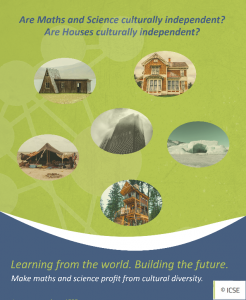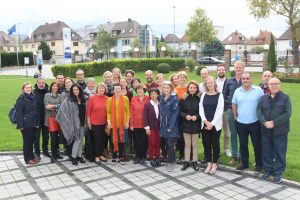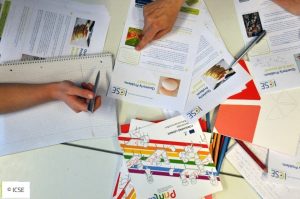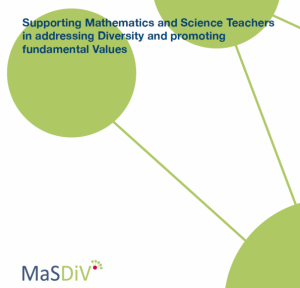Science and mathematics are vital prerequisites for active participation in society and belong to the eight key competences (EU framework for key competences, EC 2007). However, across the EU, 17% of 15-year-olds underachieve in science. In mathematics, that figure rises to 22% – and even to 36.6 % among students with low socioeconomic status (ET 2020). 13.7 million young people – those with migration backgrounds are particularly concerned here – are not in employment, education or training (Youth Report 2015). These young people are less involved in social and political life, and at risk of exclusion and marginalisation (ibid.), which in turn is a risk to our societies. Increased migration enhances the need for inclusive education that promotes learning in groups with different competence levels and cultural backgrounds and ‘disadvantaged’ students (see also Eurydice 2016).
Science also has social, cultural and ethical dimensions (e.g. the decision for or against genetic engineering in agriculture in developing countries). Therefore, science learning should be used to promote cultural awareness, critical thinking, decision making and consequently, social and civic competences (EC 2007). However, conventionally, science education has focused on the ‘learning of science’ (Hazelkorn et al. 2015). This means pure science detached from societal implications, as opposed to learning ‘of and about science’. The latter fosters young peoples’ understanding of the nature, applications and implications of science and thus, they learn principles and competences vital in democratic, pluralistic and increasingly multi-cultural European societies. In this sense, science education is also citizenship education as envisaged by the Paris declaration 2015 and in the European Education and Training 2020 program.
Delivering inclusive mathematics and science education linked to citizenship education and intercultural learning is, however, not a trivial task. Consequently teachers need support (EU-WG MST 2013, EU-WG PD 2013, Arjomand et al. 2013). Here, we find shortcomings in Europe. Experts have marked out a need to substantially improve the quality of STEM PD offers (Hazelkorn et al. 2015) and mismatches exist between teachers’ expressed need for training in suitable approaches and the course offerings available (Eurydice 2015).
A lack of adequate PD offers and an increased need for inclusive STEM education approaches (due to increased diversity in classrooms) concerns all European countries. In many European nations, policy has recently recognised the need to better support science teachers in dealing with the above named challenges in science education. MaSDiV’s measure provides an approach suitable to jointly address these challenges.







